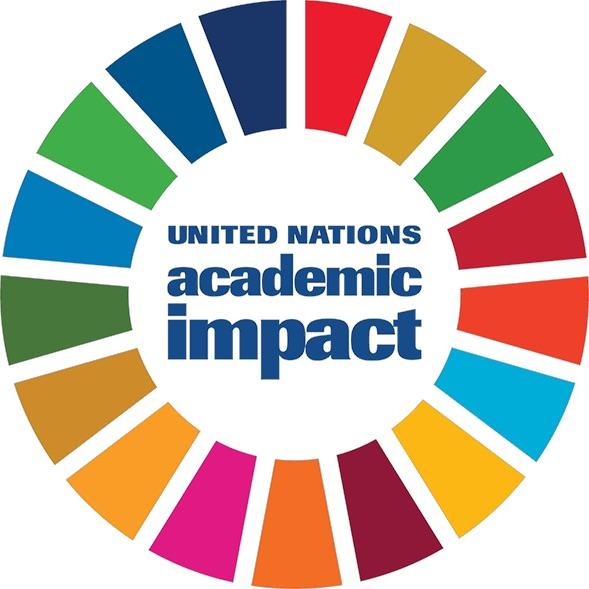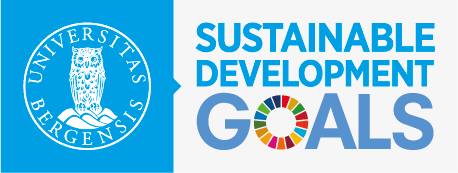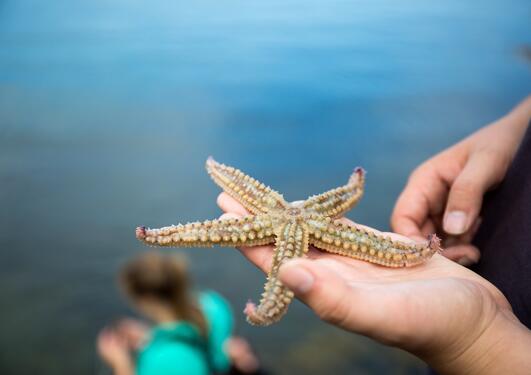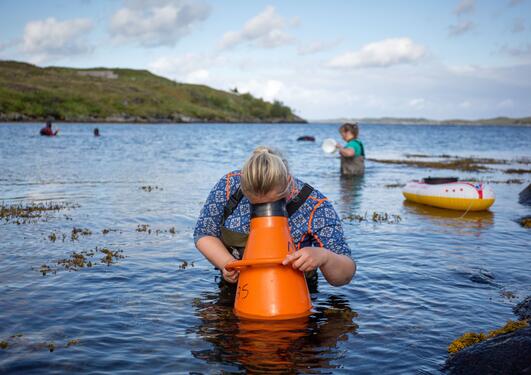The law of the high seas
Biodiversity is one of the key issues in the debate for sustaining and developing our common ocean resources. Law researchers at the University of Bergen have long been engaged in judicial questions outside national marine territories.

Main content
- In a series of articles, United Nations Academic Impact (UNAI) presents ocean science from the University of Bergen, its Hub institution for SDG 14: Life below water in the Sustainable Ocean Series. This is the third of four articles.
For most of the present decade the world has been engaged in the BBNJ negotiations, which are now entering the final phase. BBNJ is short for biodiversity beyond national jurisdiction and builds on the Convention on the Law of the Sea (UNCLOS), which is often referred to as the ‘constitution’ for the ocean. Most United Nations member states have been sending delegations to UN headquarters for a series of two-week long sessions including intergovernmental conferences (or IGCs).
Giving input to reference group
“Norway’s BBNJ delegation has established a reference group, composed of relevant scientists and interested parties from industry, civil society and other societal actors to gather broad input to this process,” says Professor Sigrid Eskeland Schütz at the University of Bergen and a member of Ocean Sustainability Bergen, a virtual centre in sustainable ocean research at the university.
She is an expert in marine management, especially marine spatial planning and impact assessment, and has long-term experience in this field both nationally and internationally. As part of her critical engagement with the BBNJ process, she has co-organized several events at the university discussing a wide range of questions on how to create a global framework for sustainable development of the ocean – including a meeting between Norway’s BBNJ reference group, scientists and other stakeholders in Bergen.
“These negotiations have relevance for all ocean oriented activity, regardless of scientific disciplines or marine sectors,” says Schütz saying that among the questions necessary to ask are: How to ensure that knowledge is emphasised in a global organisation? How to prevent research from being politicised? Will the establishment of a scientific committee promote knowledge-based marine management? And are the BBNJ draft’s decisions on impact assessments appropriate?
Reaching out to stakeholders
Professor Schütz and the University of Bergen have reached out to other stakeholders, including Fiskebåt (Norway’s marine fishing fleet organisation), the Norwegian Shipowners’ Association and Greenpeace. She believes including a wide range of viewpoints from multiple actors is vital to securing a BBNJ result – an international legally binding instrument (or ILBI) – that will be implemented by the UN member states.
“Everything from experience with ways of organizing marine research and knowledge in different organisations to ways of securing indigenous knowledge in the processes,” says Schütz, “and finding expedient ways of organising work on impact assessments, whether it should be the flag state nation that carries out these or the state where the operating company is registered or a specially appointed authority.”
However, she also urges a note of caution as to success criteria post BBNJ negotiations.
“The current BBNJ draft is weak in terms of strategic impact assessments and, based on selection of alternative proposals for impact assessments in the draft treaty, the outlined rules may turn out very differently,” says the law professor.
Juxtapositions and interconnections
Scientific Director Edvard Hviding of SDG Bergen Science Advice is another University of Bergen scientist closely engaged in the BBNJ negotiations. He has been scientific adviser to the Permanent Mission of Palau to the UN at all the three IGCs (Intergovernmental conferences) so far, and has worked on “the floor” at the negotiations in UN headquarters, particularly to ensure that the traditional ocean knowledge and management practices of Pacific islanders are recognised in the process.
Professor Hviding has also co-organized and chaired a number of side events, including at Our Ocean 2019 in Oslo, where the subject was the role of research and capacity-building in the BBNJ negotiations, incidentally the only side event at the conference to explicitly address BBNJ.
“The 2030 Agenda creates opportunities and options for juxtapositions and interconnections that are still not fully utilized in public debates on the SDGs,” says Hviding, “by organizing side events to establish direct contact channels with diplomats and policy-makers, we have worked on a better platform for providing scientific advice towards creating a truly global system for conservation and sustainable use of the ocean.”
Three-fold engagement
The objective for the University of Bergen’s engagement is three-fold.
“First and foremost, we want to create awareness in a wide range of academic disciplines of current challenges for global ocean governance and to inspire increased involvement from the scientific community,” says Hviding, “second, we have provided several arenas for exchange of science and policy ideas directly relevant to the intergovernmental BBNJ negotiations. Last but not least, we have wanted to discuss how a BBNJ legal instrument can contribute to the overall 2030 Agenda. The fate of the ocean in fact has bearings for a significant number of the SDGs and their targets.”




